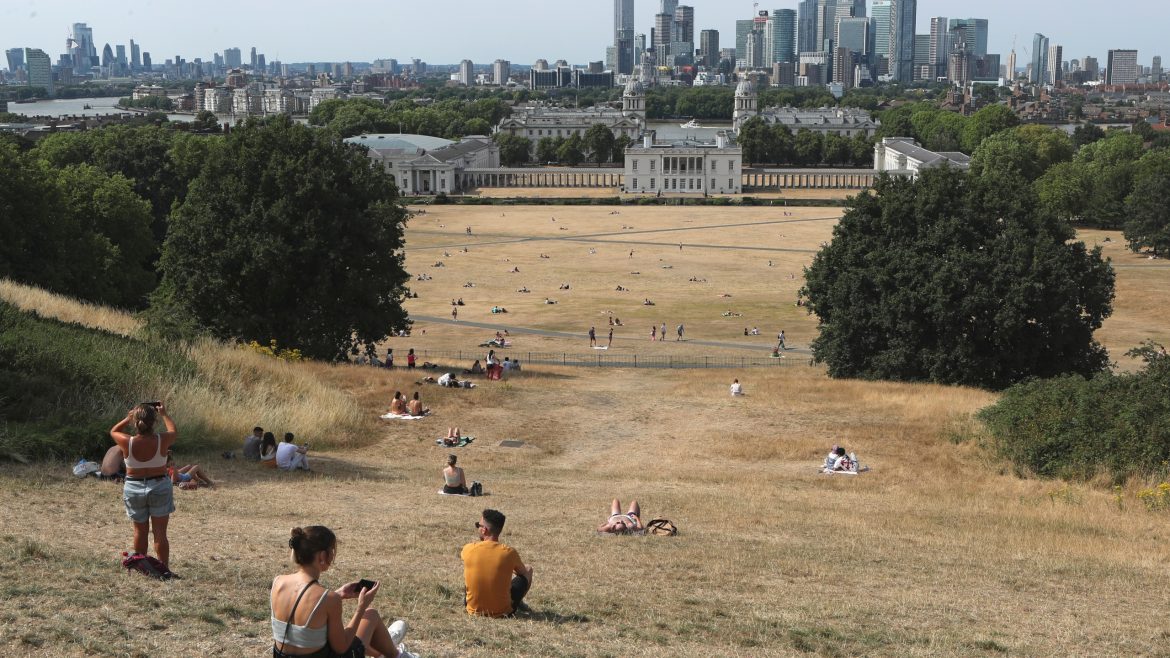Scientists have predicted that the UK and Switzerland will see a 30% increase in the number of days of uncomfortably hot temperatures if the world heats by 2C and are two of the countries which need to adapt the most for global heating.
Published in Nature Sustainability on Thursday, the research found that while central Africa will see the most extreme temperatures overall, it is mostly northern European countries that will experience the greatest relative increases in uncomfortably hot days.
It also found that the people and infrastructure in these countries are not prepared for periods of hot weather, the study, based on climate modelling and data from the UK Met Office, predicts. The estimates by researchers at the University of Oxford are conservative, and do not include external factors such as extreme heatwaves, which would come on top of this average increase.
Norway is expected to suffer one of the world’s most dramatic increases in days that require cooling interventions, the study finds, with a 28% increase in days with uncomfortably hot temperatures if the world misses the 1.5C target. Eight of the 10 countries with the greatest relative increase in uncomfortably hot days are expected to be in northern Europe.
However, the researchers said that northern European countries had not prepared for sustainable cooling alternatives as homes become uncomfortably hot in the summer months and infrastructure struggles to cope above certain temperatures. Cooling measures needed to face these temperatures include making use of natural ventilation, external solar protection such as window shutters and fans.
Read also: UN says number of people going hungry has risen by 122m since 2019
“For example, sustainable cooling barely has a mention in the UK’s net zero strategy,” said co-author Dr Radhika Khosla, an associate professor at Oxford’s Smith School of Enterprise and the Environment and leader of the Oxford Martin programme on the future of cooling.
She said that air conditioning could add to the problem if the grid was not decarbonised and fossil fuels were used to cool homes: “Without adequate interventions to promote sustainable cooling we are likely to see a sharp increase in the use of energy guzzling systems like air conditioning, which could further increase emissions and lock us into a vicious cycle of burning fossil fuels to make us feel cooler while making the world outside hotter.”
Story was adapted from the Guardian.
